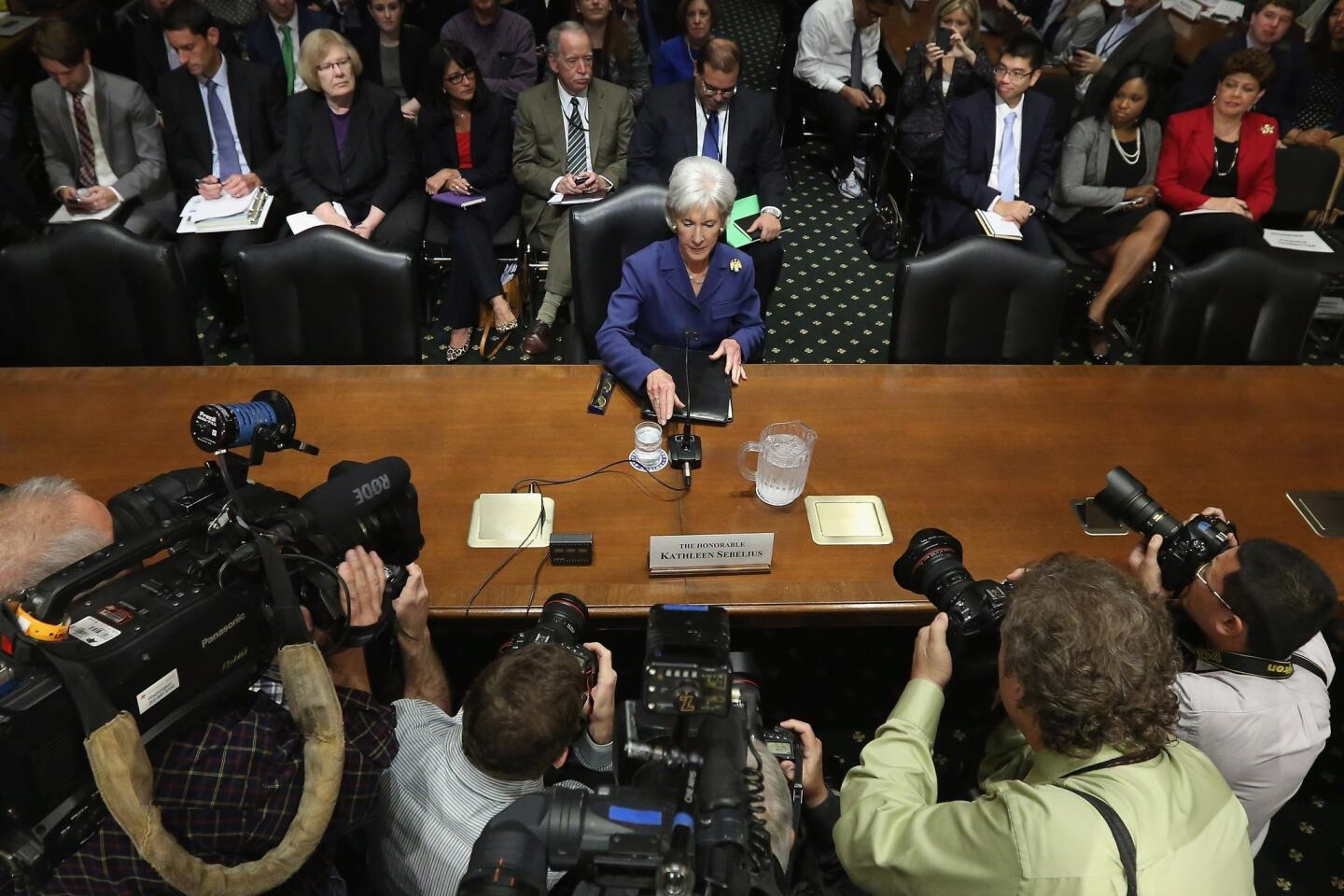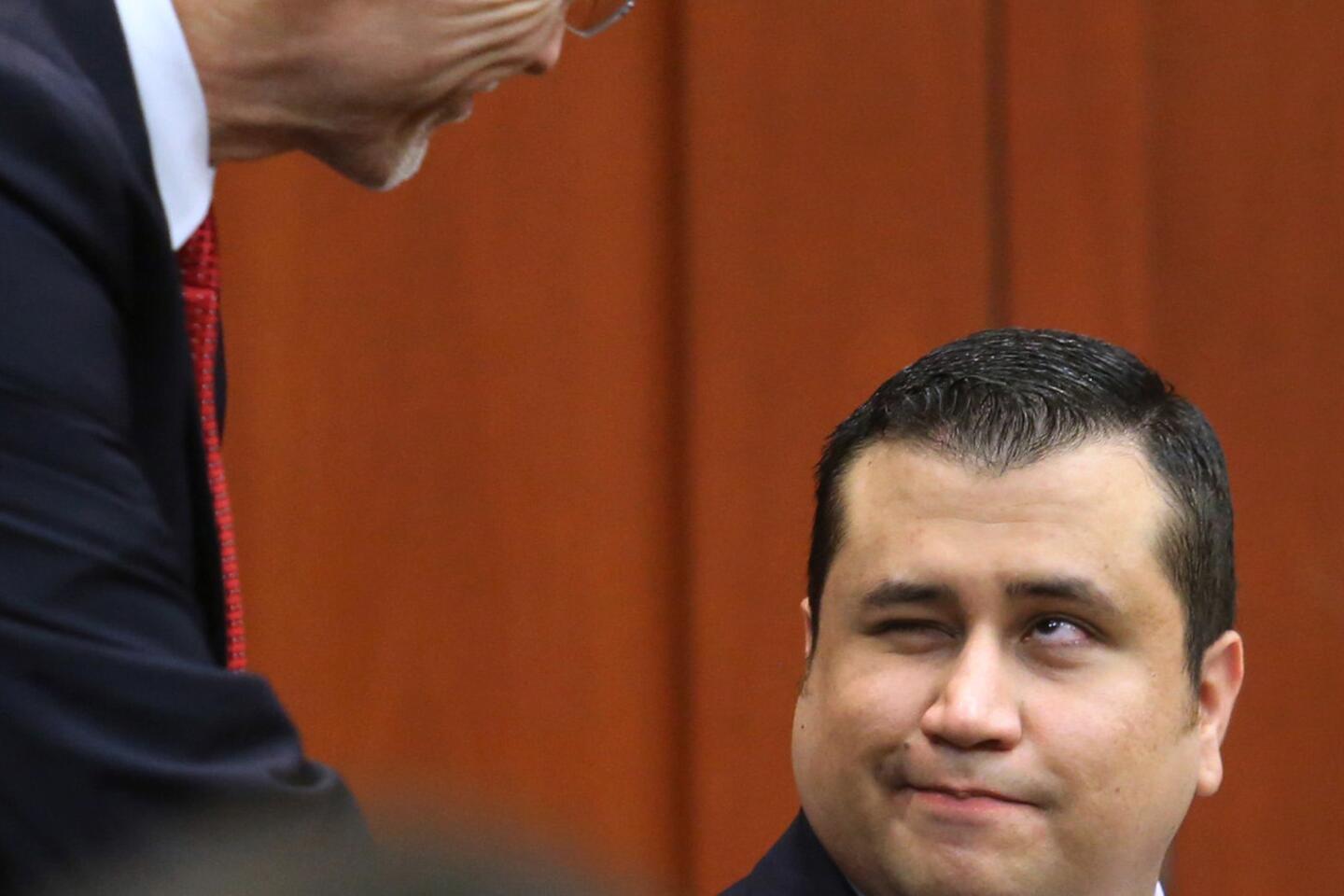Budget deal appears to have enough GOP support to clear Senate
WASHINGTON — The Senate appeared set to approve a budget deal this week after a handful of Republicans announced they would vote to advance the bill, which has deeply divided the party.
Their backing, along with that of most Democrats, would be enough to break a tea-party-backed filibuster during a crucial vote Tuesday and boost the package across the 60-vote threshold needed for consideration. Final passage could come as soon as Wednesday.
But the sharp Republican divisions over the $85-billion deal, which was approved last week by the House with a robust bipartisan majority, has turned the Senate procedural vote into a high-stakes battle between the Republican tea party wing and establishment conservatives.
The conservative organizations that vehemently oppose the package are putting tremendous pressure on Senate Republicans, their last line of defense. Opposition is likely to come from the top tier of the Republican leadership, as well as some Democrats.
“Sometimes the answer has to be yes,” Sen. Orrin G. Hatch (R-Utah) said Monday.
PHOTOS: 2013’s memorable political moments
The budget package, crafted by Rep. Paul D. Ryan (R-Wis.) and Sen. Patty Murray (D-Wash.), is a modest effort to bridge the gaping divide between the way Republicans and Democrats approach fiscal issues.
If approved, it could provide a respite from the budget wars that have sent Congress careening from crisis to crisis, and reduce the risk of a shutdown next month.
The deal would increase spending by $63 billion for 2014 and 2015 and reverse some of the steep so-called sequester cuts that only the most conservative lawmakers want to keep. No new taxes are included, but fees would be imposed on airline travel, and cuts would be made elsewhere in the federal budget, including reductions to pensions for federal workers and military retirees. More than $22 billion would be applied to deficit reduction.
Ryan, the party’s former vice presidential nominee, has been calling Republican senators to round up support. A spokesman said Ryan was “confident” the Senate would approve the deal.
“I’m not trying to oversell this as an enormous budget accomplishment. It’s not,” Ryan said on “Fox News Sunday.” “But it’s important.”
One of those receiving a Ryan call, Sen. Saxby Chambliss (R-Ga.), said Monday he would vote to advance the bill. “I think it’s the right thing to do,” he said.
Sens. Susan Collins (R-Maine), Jeff Flake (R-Ariz.) and Ron Johnson (R-Wis.) also said they would support the procedural vote. Other Republican senators are expected to join them.
After being publicly rebuked last week by House Speaker John A. Boehner (R-Ohio), the conservative groups that oppose the deal appear not only unapologetic but emboldened.
“Tell the Senate to oppose the budget betrayal,” read an email to supporters from the tea party umbrella group FreedomWorks.
In a counter-punch, the establishment-allied Business Roundtable, an association of the nation’s leading chief executives, urged senators Monday to support the “not perfect” deal.
“Serial budget showdowns, government shutdowns and brinkmanship over the full faith and credit of our nation are damaging the American economy,” wrote Randall L. Stephenson, the Business Roundtable’s chairman-elect and chief executive of AT&T.
PHOTOS: The battle over Obamacare
Senators were slow to voice support, however. Republicans who face primary challengers from the right in 2014, an unusually large number, appeared inclined to join the filibuster.
Sen. Mitch McConnell of Kentucky, the Republican leader, and Sen. John Cornyn of Texas, the No. 2 Republican, are likely to oppose the package as they square off against right-flank challengers. Their offices declined to say Monday how they would vote.
Tea party leaders, including Sens. Rand Paul (R-Ky.) and Ted Cruz (R-Texas), have already said they would vote against the deal.
“This proposal undoes the sequester’s modest reforms and pushes us two steps back, deeper into debt,” Cruz said. “That may be a fine deal for Washington, but it’s not for the American people.”
For many Republicans, rolling back part of the sequester cuts would undermine their most tangible victory after the last several years of budget battles. It’s a compromise they are unwilling to make.
Others chafed at the cuts to retirement pensions for able-bodied, working-age military retirees, a provision the chairman of the Armed Services Committee, Sen. Carl Levin (D-Mich.), said would be reviewed next year.
Sen. Bob Corker (R-Tenn.) planned to vote against the legislation, but was weighing Tuesday’s vote as he balanced his own desire to reduce spending with Ryan’s pursuit of a bipartisan accord. “I really do understand the dilemma Paul was in,” he said. “We’re discussing what the best way is of dealing with this.”
Twitter: @lisamascaroinDC
More to Read
Sign up for Essential California
The most important California stories and recommendations in your inbox every morning.
You may occasionally receive promotional content from the Los Angeles Times.
















































